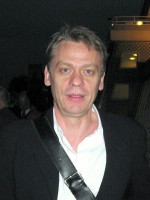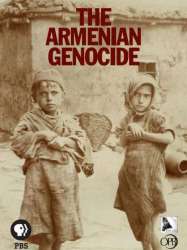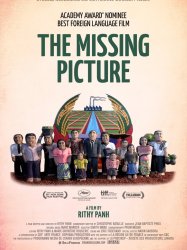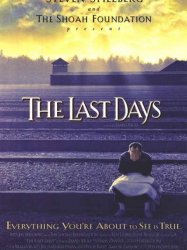Aghet is a Allemand film of genre Documentary with Martina Gedeck
Aghet (2010)
Aghet – Ein Völkermord

If you like this film, let us know!
Length 1h33
OriginGerman
Themes Films about racism, Documentary films about racism, Documentary films about law, Documentary films about war, Documentary films about historical events, Documentaire sur une personnalité, Political films
Rating68%










Aghet – Ein Völkermord (English: Aghet – A Genocide; Aghet being Armenian for "catastrophe") is a German 2010 documentary film on the Armenian Genocide by the Young Turk government of the Ottoman Empire during World War I. It is based on eyewitness reports by European and American personnel stationed in the Near East at the time, Armenian survivors and other contemporary witnesses which are recited by modern German actors. The visual material partly consists of secretly shot photographs of the death marches, Turkish atrocities and suffering of the Armenian deportees.
Aghet – Ein Völkermord was awarded the 2010 Deutscher Fernsehpreis and the 2011 Grimme Award, two of the most prestigious awards of German television. According to its director, German journalist Eric Friedler, the documentary was presented to many members of the US Congress and US Senate who have expressed astonishment on how well documented the genocide actually is. An official presentation at Capitol Hill took place in July 2010.
Aghet won the 2010 Armin T. Wegner Humanitarian Award in Los Angeles and received international recognition on the Montreal World Film Festival the same year. It was set to be shown before large audiences at Harvard and Columbia University. The documentary has been praised for introducing "Aghet", the Armenian term for the Turkish massacres, to an international audience.
The advocacy group of the Turkish community in Germany has protested against the film.
Synopsis
Aghet, se traduisant par « catastrophe » en arménien, est le mot utilisé pour désigner le massacre de plus d'un million d'Arméniens de l'Empire ottoman de 1915 à 1917. Le documentaire débute en évoquant le meurtre du journaliste Hrant Dink pour continuer sur le refus de la Turquie de reconnaître le génocide, les déclarations du premier ministre turc Recep Tayyip Erdogan ou encore le refus d'intervention du gouvernement impérial de l'Allemagne à l'époque, préfiguration d'un autre génocide, celui de la Shoah.Actors

Martina Gedeck
(Alma Johansson)

Sylvester Groth
(Martin Niepage)

Joachim Król
(Graf Wolff Metternich zur Gracht)

Sandra Hüller
(Tacy Atkinson)

Hanns Zischler
(Leslie Davis)
Comments
Leave comment :
Suggestions of similar film to Aghet
There are 116 films with the same actors, 13514 with the same cinematographic genres (including 573 with exactly the same 2 genres than Aghet), 10575 films with the same themes (including 93 films with the same 7 themes than Aghet), to have finally 70 suggestions of similar films.If you liked Aghet, you will probably like those similar films :

The Short Life of Anne Frank (2001)
Genres Documentary
Themes Films about children, Films about racism, Films about religion, Documentary films about racism, Documentary films about law, Documentary films about war, Documentary films about historical events, Documentaire sur une personnalité, Documentary films about religion, Political films, Films about Jews and Judaism, Documentary films about World War II
Actors Thekla Reuten, Joachim Król, Bram Bart, Jeremy Irons
Rating76%






Shoah (1985)
, 9h26Directed by Claude Lanzmann
Origin France
Genres Documentary, Historical
Themes Films about racism, Films about religion, Documentary films about racism, Documentary films about law, Documentary films about war, Documentary films about historical events, Documentaire sur une personnalité, Documentary films about religion, Political films, Films about Jews and Judaism, Documentary films about World War II
Actors Claude Lanzmann
Rating86%





The film is concerned chiefly with four topics: Chełmno, where mobile gas vans were first used by Germans to exterminate Jews; the death camps of Treblinka and Auschwitz-Birkenau; and the Warsaw Ghetto, with testimonies from survivors, witnesses, and perpetrators.

The Armenian Genocide (2006)
, 1hDirected by Andrew Goldberg
Origin USA
Genres Documentary, Historical
Themes Films about racism, Documentary films about racism, Documentary films about law, Documentary films about war, Documentary films about historical events, Documentaire sur une personnalité, Political films
Actors Laura Linney, Julianna Margulies, Orlando Bloom, Natalie Portman, Louis Zorich, Ed Harris
Rating45%






Genocide (1982)
, 1h30Origin USA
Genres Drama, War, Documentary, Historical
Themes Films about racism, Films about religion, Documentary films about racism, Documentary films about law, Documentary films about war, Documentary films about historical events, Documentaire sur une personnalité, Documentary films about religion, Political films, Films about Jews and Judaism, Documentary films about World War II
Actors Elizabeth Taylor, Orson Welles
Rating72%






A Film Unfinished (2010)
, 1h29Origin Israel
Genres Documentary, Historical
Themes Films about films, Films about racism, Films about religion, Documentary films about business, Documentary films about the film industry, Documentary films about racism, Documentary films about law, Documentary films about war, Documentary films about historical events, Documentaire sur une personnalité, Documentary films about religion, Political films, Films about Jews and Judaism, Documentary films about World War II, Documentary films about films
Actors Alexander Beyer, Rüdiger Vogler
Rating73%





Ce sont des séries de bobines de films de 35 mm allemandes, anonymes, sans générique, portant la seule inscription : Das Ghetto, retrouvées dans les années 1950 qui sont à l'origine du film de Yahel Hersonski. Ces bobines constituent un « documentaire » allemand sur le ghetto de Varsovie durant la Seconde Guerre mondiale. Dans les années 1990, la découverte d'une bobine manquante viendra éclairer la propagande qui se cachait dans les premières images retrouvées et le véritable but des Allemands qui réalisèrent ces images.
 , 2h2
, 2h2Origin USA
Genres War, Documentary, Historical
Themes Films about children, Films about immigration, Films about racism, Films about religion, Documentary films about racism, Documentary films about law, Documentary films about war, Documentary films about historical events, Documentaire sur une personnalité, Documentary films about religion, Political films, Films about Jews and Judaism, Documentary films about World War II
Actors Judi Dench
Rating76%





Quelques mois avant la Seconde Guerre mondiale, une extraordinaire opération de sauvetage a arraché 10 000 enfants et adolescents juifs au régime nazi. Rapatriés en Grande-Bretagne pour être adoptés, ils durent tisser de nouveaux liens familiaux, supporter les bombardements pour certains, aller libérer leurs propres parents restés en Allemagne. Ils ont tous d'inoubliables histoires à raconter dans ce documentaire.
 , 1h41
, 1h41Directed by Rithy Panh
Origin France
Genres War, Documentary, Historical
Themes Politique, Films about racism, Documentary films about racism, Documentary films about law, Documentary films about war, Documentary films about historical events, Documentaire sur une personnalité, Political films
Rating71%





Vann Nath and Chum Mey, two survivors of the Khmer Rouge's Tuol Sleng Prison, are reunited and revisit the former prison, now a museum in Phnom Penh. They meet their former captors – guards, interrogators, a doctor and a photographer – many of whom were barely teenagers during the Khmer Rouge era from 1975 to 1979. Their appearances are in stark contrast to the two former prisoners, who are both elderly men. Vann Nath, who was made to paint portraits of prisoners, has a full head of white hair.

Directed by Gail Dolgin
Genres Documentary, Historical
Themes Films about racism, Documentary films about racism, Documentary films about law, Documentary films about war, Documentary films about historical events, Documentaire sur une personnalité, Documentary films about politics, Documentary films about health care, Political films
Rating6%






The Missing Picture (2013)
, 1h32Directed by Rithy Panh
Origin France
Genres War, Documentary, Historical, Animation
Themes Politique, Films about racism, Documentary films about racism, Documentary films about law, Documentary films about war, Documentary films about historical events, Documentaire sur une personnalité, Political films, Autobiographical documentary films
Actors Randal Douc, Jean-Baptiste Phou, Rithy Panh
Rating72%





En utilisant des figurines d'argile et des images d'archive, Rithy Panh témoigne des atrocités commises par les Khmers rouges au Cambodge entre 1975 et 1979.

The Last Days (1998)
, 1h27Directed by James Moll
Genres Drama, War, Documentary, Historical
Themes Films about racism, Films about religion, Documentary films about racism, Documentary films about law, Documentary films about war, Documentary films about historical events, Documentaire sur une personnalité, Documentary films about religion, Political films, Films about Jews and Judaism, Documentary films about World War II
Rating78%





Le documentaire relate l'histoire de cinq juifs hongrois durant l'holocauste, en s'intéressant notamment à la vie dans les camps de concentration et au désir de vivre des prisonniers.
 Connection
Connection